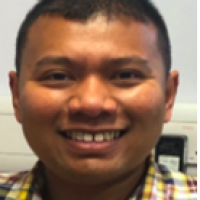A step change towards self-empowerment for people living with SLE Save

As I reflect on my research journey, I recall several issues that still need to be addressed in the management of SLE. In my focus group consisting of people living with SLE and their carers, one of the keys issues raised by them was pertaining to poor reliable information about their condition. For example, following a positive autoantibody (ANA) test, they did not feel well-informed about the potential significance of the ANA test organised by their treating primary care physicians and were unaware why they were referred to rheumatology at the first place. Once diagnosed, they voiced out that the internet emphasised potentially serious complication of SLE leading to increased confusion and anxiety. Moreover, as we live in a diverse community, languages may be a barrier to effective communication and impact on patients’ adherence to clinic attendances and therapies.
Since knowledge is power, can we overcome this unmet need?
At the 2023 EULAR Congress in Milan, I learned about the wide scale dissemination and international launch of Lupus100.org project (OP0004 and POS1124). You probably were not at the congress venue if you were not handed over an information leaflet about this project by the hardworking and tireless staff. This is a collaborative project between the patients and the doctors. The journey started from the production of “100 questions about lupus” booklet by the lupus specialist centres in France. As this booklet was an instant success among patients in French speaking countries, Lupus Europe took the initiative to work with the Katana Sante (owner of the 100 questions series) and the European reference network ReCONNET to update these questions and made this widely available by establishing a user-friendly website, as well as in at least 18 common languages in Europe; 11 translations are now available at the time of writing.
Having browsed this free of charge website myself, I am impressed with its contents: 100 common questions usually raised by the patients and their carers about SLE and the information pertaining to these questions. In particular, the “Takeaways” box summarised the information succinctly. This Lupus100.org project (https://lupus100.org/en/100-questions) will hopefully provide access to quality information in the patients and their carers’ native languages about SLE, thus empower them to self-manage.










If you are a health practitioner, you may Login/Register to comment.
Due to the nature of these comment forums, only health practitioners are allowed to comment at this time.